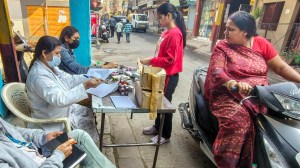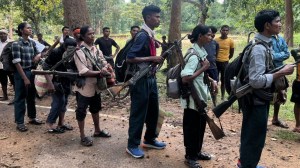Golden route back for Yangon
An international effort is needed to retrieve Burma into the international mainstream. The debate about what ought to be done has gone on fo...

An international effort is needed to retrieve Burma into the international mainstream. The debate about what ought to be done has gone on for too long. There is little hope of the vicious cycle of internal strife, mistrust and mutual recrimination disappearing its own soon. International actions should transcend the goal of removing the junta from power and releasing Aung San Suu Kyi from house arrest. A new way must be found to prevent Burma from sliding further into seclusion. Not so long ago, Rangoon was a flourishing city, when Bangkok was only a village. Burma exported three million tons of rice prior to its independence. Indians in the past called Burma swarnbhumi, the 8220;golden land8221;, while others considered it the jewel of Southeast Asia. Burma now has the lowest per capita income in the region.
In a typical Cold War-era operation, the junta recently organised a seminar, 8220;Understanding Myanmar8221;, in Yangon, to explain its political reforms envisioned in the Seven-Step Roadmap announced in August 2003 by Prime Minister Khin Nyunt. The junta explained that the new roadmap is a process for the emergence of a 8220;genuine and disciplined democratic system8221;. There was much talk about 8220;building a modern and democratic nation8221;, without actually discussing political freedoms and Aung San Suu Kyi. They only projected a policy of fostering peace and stability in the country by accommodating all armed insurgent groups as well as controlling the source of opium production in large parts of the country. There is, undoubtedly, a clear need to acknowledge the junta8217;s evident gains on both fronts. However, it is common knowledge that insurgency and drugs are only peripheral to Burma8217;s current problem. Clearly, the Tatmadow, having learnt the art of ruling, wished to divert attention away from the core issue of political reforms and keep Suu Kyi cut off from the international community, a tactic already successfully pursued on the domestic front.
In 2005 Myanmar takes over chairmanship of the Asean standing committee. In 2006 it will host the Annual Ministerial Meeting AAM, the Asean post-ministerial conference and the ARF. The success of those meetings would depend on ministerial representation from all dialogue partners and ARF participant countries. And if the current impasse in the process of national reconciliation continues, it is possible that the western dialogue partners would not turn up for the events in Yangon. This would be an embarrassment for the junta and will place the credibility of Asean at stake. Asean members have been pressuring Myanmar to quickly address its domestic problems. The year 2006 could be a golden opportunity for Myanmar to return to the international mainstream.
The roadmap contains old wine in a new bottle. It offers no itinerary or timeframe. The government controls all the mechanisms. In fact, doubts also persist about its sincerity, considering the junta8217;s previous record. The opposition is unlikely to blindly accept anything and may continue to insist, as a pre-condition, that the result of the 1990 elections be honoured. Suu Kyi is unlikely to accept the junta8217;s role beyond the transition stage. The ceasefire with insurgents is also considered fragile.
Power struggles within the military too cannot be ruled out. This may have driven the moderate Khin Nyunt to be more outspoken about reconciliation and reform as against Maung Aye, the number two in the hierarchy, who advocates crushing of the opposition. Khin is of ethnic Chinese origin and Maung opposes over-dependence on China.
So far, neither the engagement strategy practised by many Asian countries, nor the punitive sanction policy used by Washington and the EU has produced any tangible results. It is time that an international programme is drawn up through an initiative under a one-plus-three framework UN plus China, India, Thailand. The group should map out an action plan which can be used as a starting point for breaking the vicious cycle underlying the current impasse. Once sufficient confidence building takes place, the group should prepare mechanisms and help supervise the process of national reconciliation and political transition. The UN and the three neighboring states have a direct legitimate interest in seeing Burma achieve peace and prosperity.
- 01
- 02
- 03
- 04
- 05































